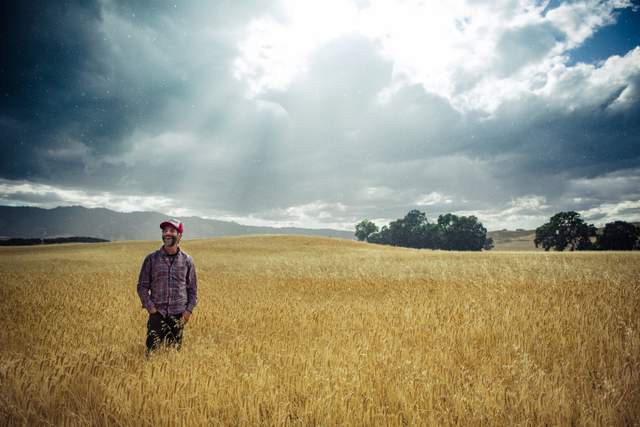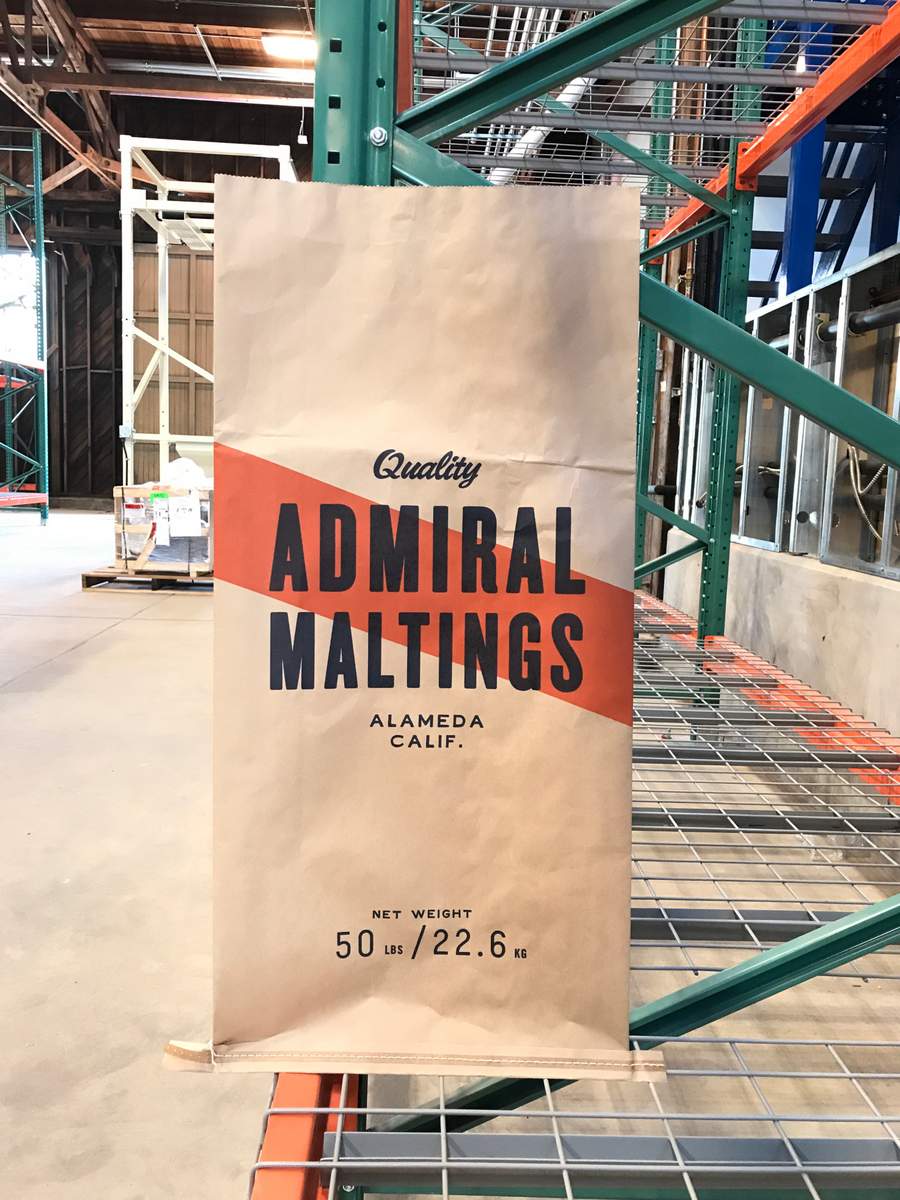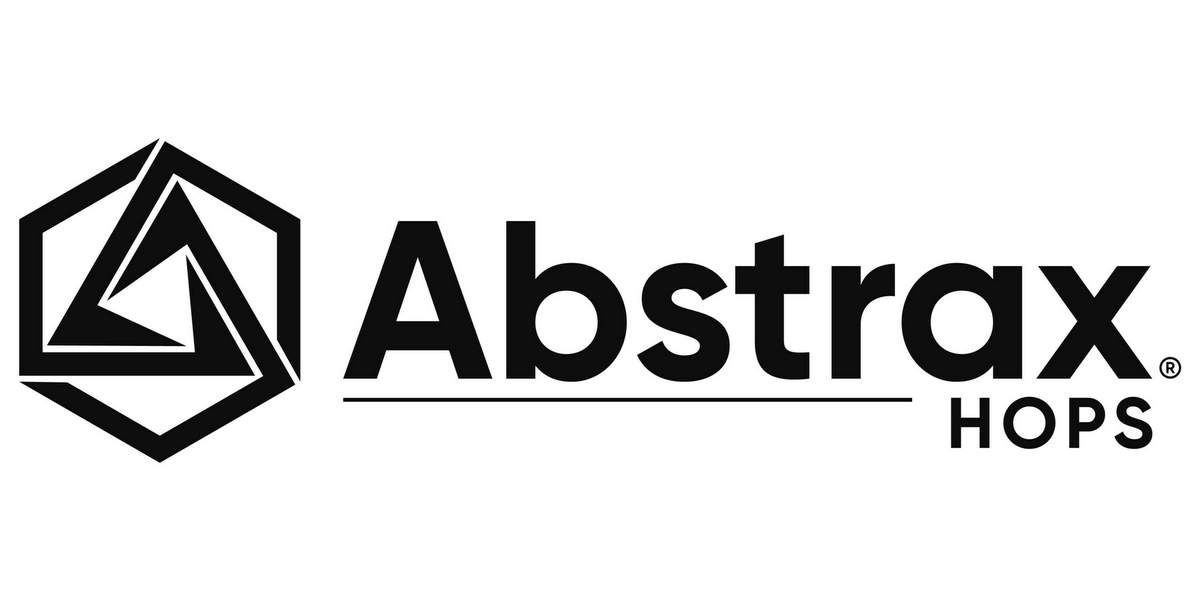
Small batch malting. Organic agriculture. Unique craft culture. Admiral Maltings has been at the forefront of resurrecting California’s rich history in malting — an important ag export for the state from the 1860s to 1940. The Alameda, Calif., maltster was founded by two long-time San Francisco brewing industry vets in 2017 — Ron Silberstein of ThirstyBear Brewing Co. and Dave McLean of Magnolia Brewing Co. — along with Curtis Davenport, who boasts an extensive background in organic farming and small batch malting. Together, Admiral Maltings provides artisanal malts to almost 300 breweries and more than 30 distilleries, giving craft alcohol makers the ability to capture the feeling and flavor of the Californian terroir.
Just watch the Sierra Nevada Live video below (yep, Sierra’s a customer) to see how passionate and intelligent these guys are about producing exceptional malt (barley, wheat, rye and oat varieties) via traditional floor-malting methods, going into everything from beer to bourbon. Also, Admiral Maltings sells malt approved by California Certified Organic Farmers (CCOF). This includes no-till, CCOF Organic and dry farmed grains. Admiral Maltings’ facility also incorporates a variety of sustainably focused operations from its grey water system to its 100 percent recyclable malt bags.
Let’s take two products that are great examples of the craft company’s offerings. No 1…
“Aside from all the quality, freshly kilned, California-grown floor malts we already make, Admiral recently malted a chit malt,” said Silberstein, cofounder. “The chit is ideal for foam, body and, in larger amounts, haze. At 5 to 15 percent it gives great body and mouth feel to a Helles or a pils and increased foam stability and retention to any beer. At up to 25 to 40 percent it is useful to make a lower ABV beer. It can be used in place of Carafoam or raw barley.”

This is a CCOF Organic Chit Malt. Easier to use than raw barley, this malt has only just “chitted” or started its germination before Admiral Maltings lightly kilns it (similar to a pils). It is only 1.1 SRM (the Standard Reference Method color system is used by brewers to specify finished beer and malt color) and is low in soluble protein and even lower in modification. It has low Diastic Power (how much starch-converting enzyme a malt contains) and more extract than a raw grain, but with its husks intact. After malting, it is quite easy to mill and use this Chit Malt the same as the rest of the grist in the mash tun. It also passes the Reinheitsgebot law.
“We also recently malted a Pre-Prohibition Pilsner-style malt from Atlas, a six-row heritage barley variety,” said Silberstein. “This malt is a throwback to a forgotten era of Northern California malting and brewing. The Spanish first brought Atlas to California from the Atlas Mountains in Morocco. Atlas was grown throughout the Sacramento Valley and even exported to England from the 1860s until World War II. It was the landrace variety that UC Davis selected as the foundation seed for the first UC Davis malting barley varieties registered by the university. They released a number of Atlas varieties in the first part of the 20th century. We built this malt around a historic style, using traditional processes.”
This Atlas malt is only 1.35 SRM. East Brother Beer Co. in Richmond, Calif., canned a Pre-Prohibition Lager using 80/20 Atlas/flaked corn, and “it is an outstanding representation of the American Lager style,” said Silberstein.
Admiral Maltings is currently working with the likes of Sierra Nevada Brewing Co. for its CCOF organic Estate Ale series. For this year’s harvest, Sierra Nevada focused on growing some newer malting varieties developed at UC Davis — Butta 12 and Tahoe. In turn, this has led to an outstanding harvest of more than 60,000 lbs of malting barley, which Admiral Maltings will floor malt for Sierra Nevada’s Estate Ale beers. Another example: Seismic Brewing Co. in Santa Rosa, Calif., collaborates with Admiral for a 100 percent California grown, malted and brewed beer called Tremor California Light Lager. That’s just the beginning.
You can try a variety of Admiral malted beers at The Rake Pub in its Alameda malthouse. It’s a 20,000-sq-ft building that was originally a World War II-era naval dry goods facility but is now the site of the first floor malting facility in California since pre-Prohibition and California’s only CCOF certified malting operation. To learn more about these uniquely California malts, jump right over here.





Leave a Reply
You must be logged in to post a comment.